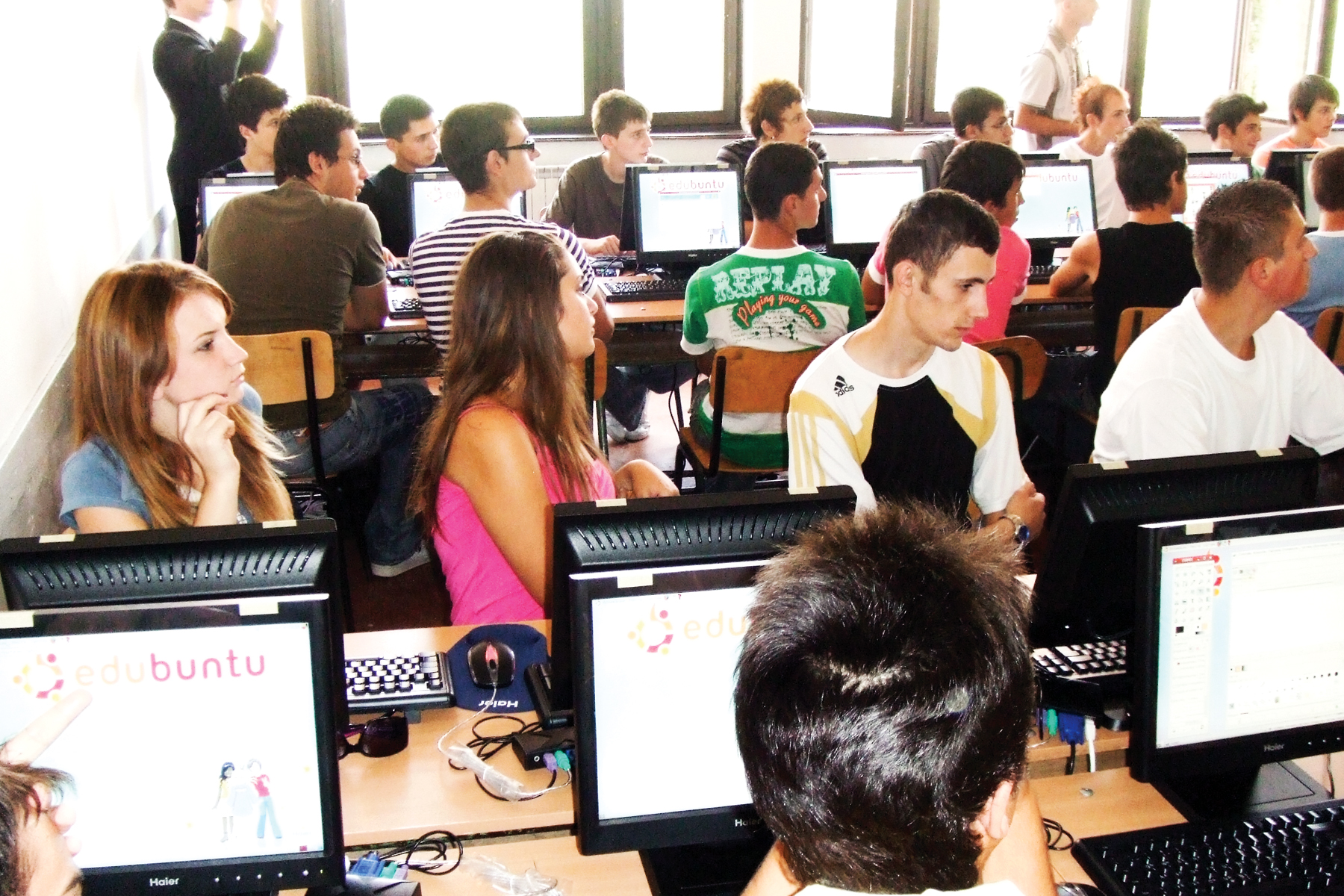UN to send 500,000 NComputing devices to developing world
Half a million schoolkids in developing countries will get computer access though NComputing technology.


Low-cost terminal firm NComputing has won a UN contract to provide half a million desktops to schools in the developing world.
NComputing uses a thin-client like system to split out desktop PCs to multiple students. Essentially, the NComputing tech takes advantage of improvements in processing ability.
Most basic apps use just a small portion of a modern computer's ability. NComputing lets multiple students use the same computer at separate desktops with their own monitors and peripherals, treating the PC sort of like a central server. Alternate versions also allow the terminals to be used over the network.
NComputing said the system is cheap, easy to ship because of the small size of the necessary hardware, simple to install and maintain, and uses just a single watt of electricity for each desktop seat.
After a pilot programme in Burkina Faso, the United Nations Department of Economic and Social Affairs (UNDESA) is looking to deliver 500,000 such desktops to schools around the developing world in the next three years. Trials for this year based in Rwanda, Senegal and Tanzania will use NComputing's Linux-based virtual desktop system, but Windows-based systems are also available.
The head of the programme, Dr. Paul Jhin, noted that the system helps the developing world make better use of donated equipment.
"The NComputing virtual desktops give us an important opportunity to significantly expand computing access and simplify deployment," said Dr. Jhin in a statement.
Sign up today and you will receive a free copy of our Future Focus 2025 report - the leading guidance on AI, cybersecurity and other IT challenges as per 700+ senior executives
"This maximizes the use of donated and refurbished computers and simplifies deployment and power requirements, which are key issues in many parts of the developing world."
Low-cost terminal firm NComputing has won UN contract to provide half a million desktops to schools in the developing world.
NComputing said the system is cheap, easy to ship because of the small size of the necessary hardware, simple to install and maintain, and uses just a single watt of electricity for each desktop seat.
After a pilot programme in Burkina Faso, the United Nations Department of Economic and Social Affairs (UNDESA) is looking to deliver 500,000 such desktops to schools around the developing world in the next three years. Trials for this year based in Rwanda, Senegal and Tanzania will use NComputing's Linux-based virtual desktop system, but Windows-based systems are also available.
The head of the programme, Dr. Paul Jhin, noted that the system helps the developing world make better use of donated equipment.
"The NComputing virtual desktops give us an important opportunity to significantly expand computing access and simplify deployment," said Dr. Jhin in a statement. "This maximizes the use of donated and refurbished computers and simplifies deployment and power requirements, which are key issues in many parts of the developing world."
NComputing has previously worked with schools in troubled countries, including helping a women's business school in Afghanistan create a much-needed computer lab under conditions so challenging they make average IT admins' recession woes look silly.
"Access to computing technology is a cornerstone for education, social, and economic development in the 21st century," said Sarbuland Khan, executive coordinator of UNDESA's computer aid programme, in a statement.
"This initiative will play an important role in closing the digital literacy gap that exists in the world's developing nations."
Click here to read on about how you can help tech charities.
Freelance journalist Nicole Kobie first started writing for ITPro in 2007, with bylines in New Scientist, Wired, PC Pro and many more.
Nicole the author of a book about the history of technology, The Long History of the Future.
-
 What the fragmentation of UC means for the channel
What the fragmentation of UC means for the channelIndustry Insights If communications are becoming fragmented, what does that mean for MSPs and VARs?
-
 How SMBs can DIY their IT implementation and support
How SMBs can DIY their IT implementation and supportFeature For some small and medium-sized businesses, the third-party expertise and support might be out of reach. What’s the alternative?
